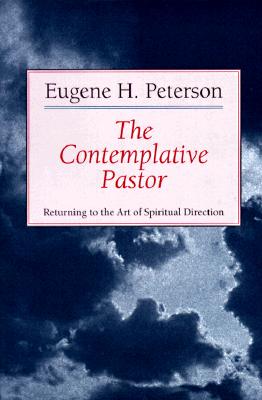There are few writers I enjoy more than Eugene Peterson. His love for God, for people, and for language routinely meet on the pages of his books. His work should be tasted and savored, but I find it difficult not to binge on his writings. Not surprisingly, Peterson exploring "the Art of Spiritual Direction" in The Contemplative Pastor (1989) was a book that I had a hard time setting down.
The Contemplative Pastor is broken into three sections. In the first, "Redefinitions," Peterson explored three descriptors for a pastor: unbusy, subversive, and apocalyptic. I was recently moved by his description of the "unbusy pastor" in his later memoir The Pastor and had some familiarity with the idea of the apocalyptic pastor. Briefly, in Peterson's thoughts, pastors should be characterized by settledness, margin, and patience, working without frenzy in the day to day life of the church and of the world.
The second section--the longest--is called "Between Sundays". Peterson meaningfully argues that much, if not most, of the work of the pastor takes place from Monday to Saturday. The nine chapters here are built around the beatitudes with an eye toward soul care. Each chapter begins with a poem and then moves into the realities of spiritual direction, exploring themes such as creation, prayer, language, small talk, and suffering.
The final, albeit too brief, final section contains a number of poems about the incarnation. Peterson asked, "is it not significant that the biblical prophets and psalmists were all poets?" To answer his rhetorical question, yes, I believe it is significant. Words matter.Words convey truth, but they also convey beauty.
Like his previous works The Contemplative Pastor by Peterson is a joy to read, whether or not you are a pastor.


No comments:
Post a Comment